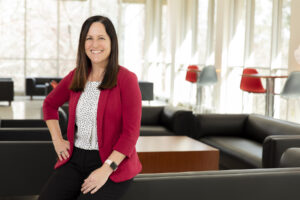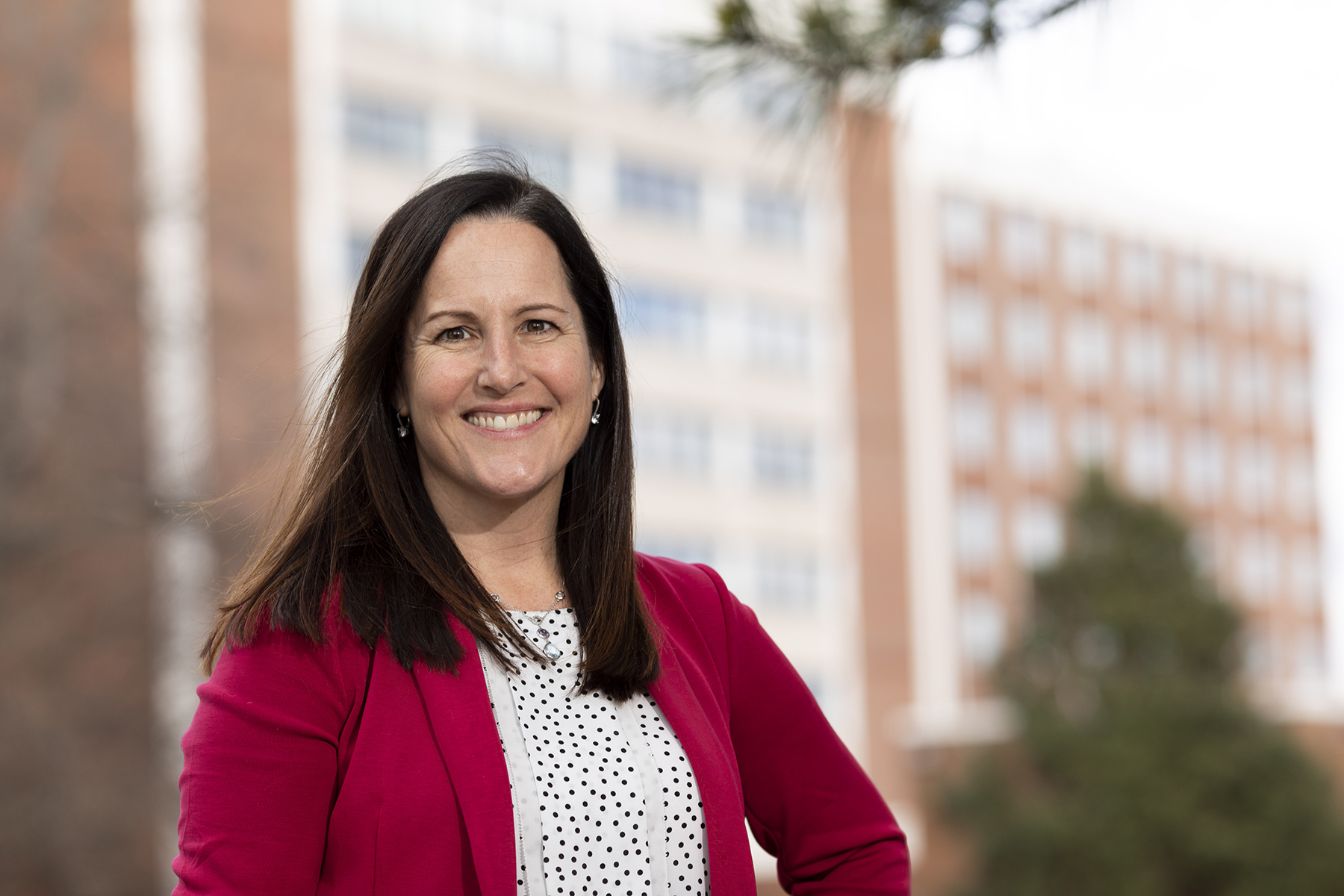The residence halls at UGA boast more than a place for students to sleep and study. Long before COVID-19 began limiting face-to-face interactions, residence hall environments were designed to assist students as they transition in and through college. Housing staff are focused on creating intentional learning opportunities, connecting to the larger campus community and providing students a home.
This approach is, in part, a direct result of Linda Kasper’s professional philosophy, which emphasizes the academic and developmental benefits of living on campus. As the executive director of University Housing, she has spent her professional life ensuring strong learning environments in the residence halls.
Discovering her passion
Kasper, who grew up in Ann Arbor, Michigan, first discovered her passion for collegiate housing as a resident assistant at Northern Michigan University.

“I was an undergrad student, and I was very lost,” she said. “When I became an RA, I felt calm. I really enjoyed the unique opportunity to connect with students and have an impact on their college experience.”
Since then, almost every job she has had has been in the field.
Her current position at UGA started three years ago after working as executive director of residential education at the University of South Florida in Tampa.
The position at USF allowed her to influence a changing campus culture. Kasper described the changes she was able to make, saying that her time at USF presented an opportunity to shift away from a model where an RA’s primary focus was on programming and crisis response to one where their focus was on relationship building and academic success. This helped the university connect first-generation and at-risk students to resources across campus—something that she’s still passionate about here at UGA.
USF also allowed Kasper to continue the work she was doing previously at Oregon State University with international students. Both OSU and USF partnered with a company that brought international students to campus to increase their English proficiency and prepare them to become matriculating students. Her interests in working with international students stemmed from living in Tianjin, China, and teaching English to students at Nankai University.
Creating a culture
All of these experiences helped hone Kasper’s professional philosophy and equipped her to serve in her current leadership position at UGA, where she supervises three directors—one in residential programs and services, one in administrative services and communications and one in facilities. Although she doesn’t have as much interaction with students day to day as in some of her previous positions, she knows her work is essential to their well-being.
“What I like to say is that my current position is helping create a culture that allows students to thrive on campus,” she said. “The decisions I’m making are being mindful of UGA students today, and looking to ensure we are moving in the strategic direction of our university.”
A culture of learning in the residence halls is helping students make the most of their time at UGA. She refers back to her belief that the experiences happening in the residence halls and on-campus apartments are helping students explore the essential skills that will help them and are equally as important as the experiences happening in classrooms and extracurricular activities.
“Ninety-eight percent of all first-year students live on campus, so there’s such an opportunity to set a stage for how students will progress throughout their time here,” she said. “One of our goals is to make this large university feel small and personable. The best resources that we have are the student staff who live and work in the residence halls.”
Kasper explains that University Housing has one student staff worker for every 40 students living on campus, and that RAs and CAs (C.L.A.S.S. advocates) not only serve as a key point of contact but also as educators for essential life skills.
“For example, many of our students are from rural Georgia, and many of our students are from urban Georgia, so what does that mean when you’re living with someone who hasn’t had the same experiences as you? We try to navigate how to bring a respectful and inclusive environment to our residence halls. We want every single student to be successful and meet their academic and personal goals,” she said.
Kasper believes that UGA has some of the best students and appreciates the fact that she feels comfortable reaching out to and engaging with faculty members and partners who also support students. One of the best examples of University Housing’s interdisciplinary focus is its partnership with the Division of Academic Enhancement to create the Russell Academic Center on the first floor of Russell Hall, which features high-tech classrooms and quiet study spaces.
“Students don’t always realize where they learned something, they just know that they learned it at UGA. Whether they learned that in class or during office hours or with their roommate at 2 a.m., they are always learning,” she said.


